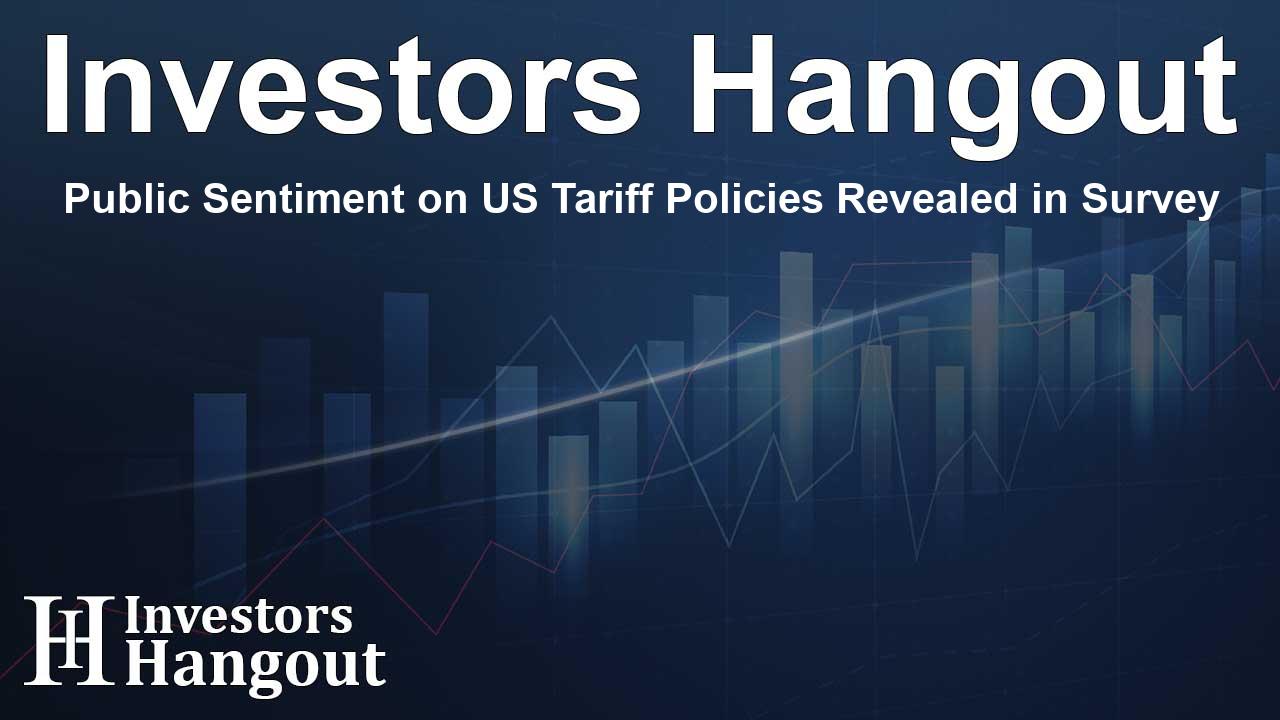Public Sentiment on US Tariff Policies Revealed in Survey

Public Sentiment on Tariff Policies
Recent discussions around international trade policy changes in the United States have ignited significant public interest. A new survey highlights that majorities from both parties, Republicans and Democrats, oppose raising tariffs on all imports to 10-20 percent. Instead, there is strong support for maintaining lower tariffs with countries that adhere to trade agreements, demonstrating bipartisan agreement on this critical economic issue.
Support for Low Tariffs and Trade Agreements
The survey indicates that a substantial percentage of Americans prefer the United States to continue its tradition of reducing tariffs on a mutual basis, provided that other nations comply with established trade rules. This sentiment is prevalent in key swing states and across the nation, showcasing a collective desire for a fair trade environment. Educational efforts and public discussions have underlined the positive long-term impacts of low tariffs on economic growth and international cooperation.
Exploring Public Preferences
When respondents were informed about the history of U.S. tariff practices, most understood the importance of maintaining these low tariffs, emphasizing that since World War II, the average tariff rates have dramatically decreased due to international agreements. The findings reveal that approximately 72% of Americans believe in working collaboratively with other nations to uphold these frameworks, reinforcing the necessity of a rules-based trade system.
Concerns Over Across-the-Board Tariffs
Despite the support for low tariffs, the notion of implementing blanket tariffs of 10-20 percent on all imports is met with skepticism. Individuals evaluated various arguments for and against such a proposal. While proponents argue that these tariffs would increase government revenue and create domestic jobs, opponents warn about potential negative ramifications such as retaliation from trading partners and increased consumer prices.
Survey Findings on Tariff Opposition
The survey unveiled that fewer than 35% of respondents favored raising tariffs for all imports. In contrast, a significant majority insisted on keeping the existing low tariffs based on mutual benefit. This highlights a desire to protect the interests of consumers while encouraging foreign relations through cooperative trade practices.
High Tariffs on China: A Bipartisan Consensus
In contrast to the general opposition to higher tariffs on all imports, the survey found a solid bipartisan consensus for maintaining high tariffs specifically on goods from China. Initiated in response to alleged trade rule violations, these tariffs resonate with 71% of respondents. The general agreement among Republicans and Democrats illustrates a unified front regarding trade relations with China, acknowledging the complexities of international trade challenges.
The Importance of Labor and Environmental Standards
Further analysis of public sentiment has revealed strong support for incorporating enforceable labor and environmental standards into trade agreements. Respondents expressed overwhelming backing for policies intended to safeguard labor rights and environmental protections, with approval ratings ranging from 76% to 90% among different demographics. This indicates a growing awareness of the consequences of unregulated trade practices and highlights the importance of ethical considerations in international economic interactions.
Concluding Thoughts
In sum, the survey underscores a clear preference for a balanced approach to tariff policies: maintaining low tariffs with compliant countries while preserving high tariffs on nations that violate trade norms. Such insights reflect the nuances of public opinion, advocating for a trade strategy that prioritizes both economic interests and ethical standards in labor and environmental practices. The growing complexity of international trade reinforces the need for continued dialogue and cooperation, ensuring that policies can adapt to the evolving global landscape.
Frequently Asked Questions
What is the purpose of the survey discussed?
The survey aims to gauge public opinion on U.S. tariff policies, particularly regarding imports and trade relations with specific countries like China.
Who conducted this public consultation survey?
The survey was conducted by the Program for Public Consultation at the University of Maryland.
What were the main findings regarding support for low tariffs?
Most respondents expressed a preference for keeping low tariffs with countries that adhere to trade agreements, while opposing blanket tariffs on all imports.
Why do respondents support high tariffs on China?
Support for high tariffs on China stems from concerns about trade violations and a desire for fair practices in international trade.
How do labor and environmental standards factor into trade agreements?
Respondents overwhelmingly support including enforceable labor and environmental standards to protect rights and ensure fair practices in U.S. trade deals.
About Investors Hangout
Investors Hangout is a leading online stock forum for financial discussion and learning, offering a wide range of free tools and resources. It draws in traders of all levels, who exchange market knowledge, investigate trading tactics, and keep an eye on industry developments in real time. Featuring financial articles, stock message boards, quotes, charts, company profiles, and live news updates. Through cooperative learning and a wealth of informational resources, it helps users from novices creating their first portfolios to experts honing their techniques. Join Investors Hangout today: https://investorshangout.com/
Disclaimer: The content of this article is solely for general informational purposes only; it does not represent legal, financial, or investment advice. Investors Hangout does not offer financial advice; the author is not a licensed financial advisor. Consult a qualified advisor before making any financial or investment decisions based on this article. The author's interpretation of publicly available data shapes the opinions presented here; as a result, they should not be taken as advice to purchase, sell, or hold any securities mentioned or any other investments. The author does not guarantee the accuracy, completeness, or timeliness of any material, providing it "as is." Information and market conditions may change; past performance is not indicative of future outcomes. If any of the material offered here is inaccurate, please contact us for corrections.